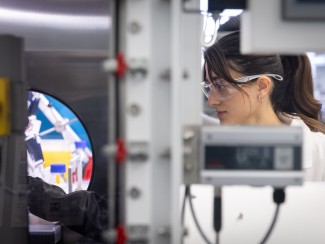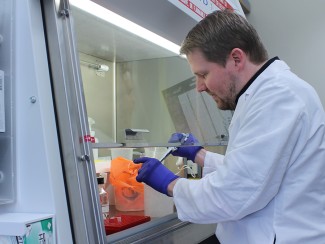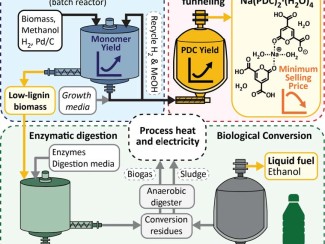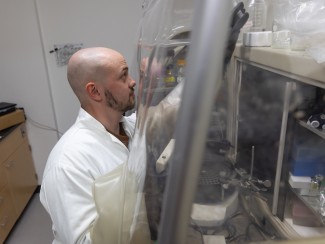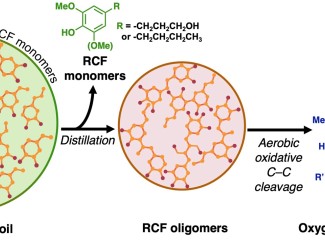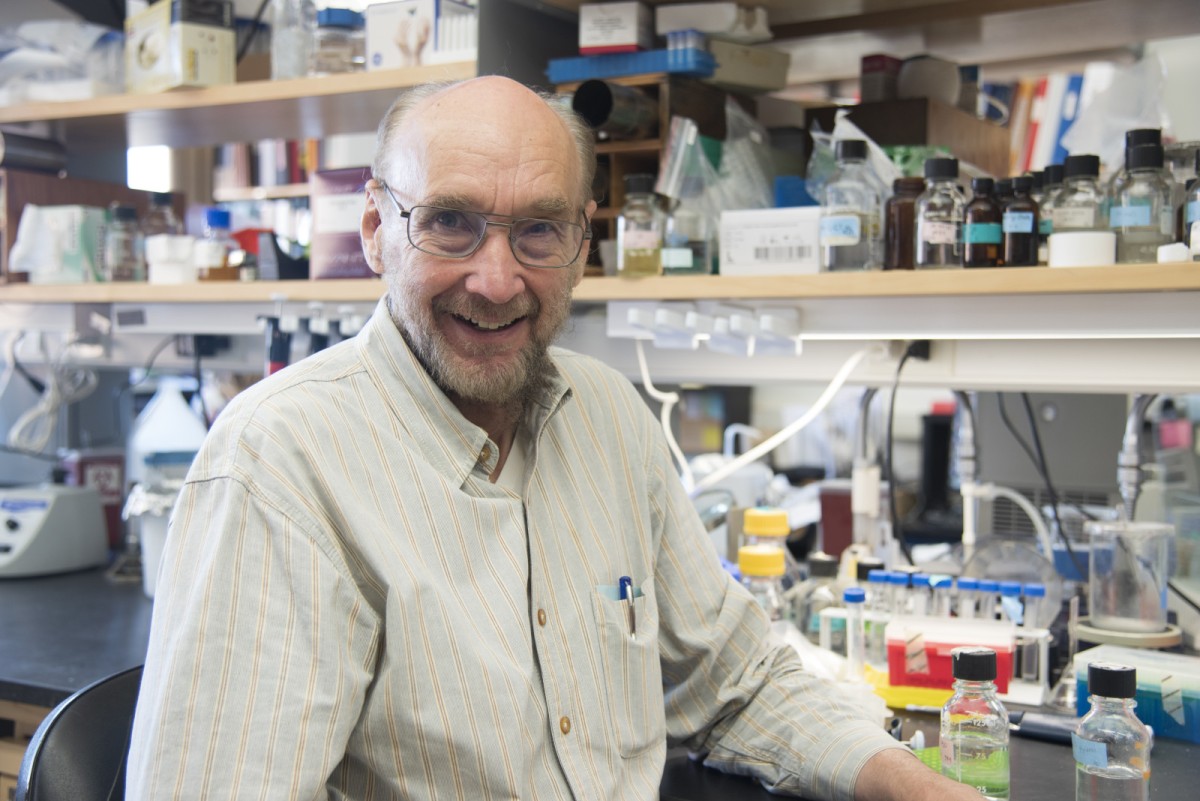
University of Wisconsin–Madison faculty have recognized Wisconsin Energy Institute co-investigator Robert Landick for his contributions to teaching, research, and service.
Landick, a professor of biochemistry, was one of four faculty members honored with the university's annual Hilldale Award. Faculty members representing the arts and humanities, biological sciences, physical sciences and social sciences are selected from nominations submitted by department chairs.
Landick’s work focuses on the biochemical processes behind the form and function of DNA and RNA, the molecules that govern all of biology. He has made several landmark discoveries in molecular biology, providing insight into the role of enzyme RNA polymerase and the mechanisms that enable transcription of DNA and generation of proteins. His observations have laid the groundwork for the field of single-molecule biochemistry, illuminated connections between biochemistry and genomics, provided potential treatments of diseases, and even developed methods to engineer biofuels and bioproducts from renewable resources. He has been elected to the American Academy of Arts and Sciences and the American Association for the Advancement of Science, and is a Fellow of the American Academy of Microbiology.
Through teaching and mentoring undergraduates and graduate students alike, Landick has worked tirelessly to improve training for students on campus and impart crucial grant-writing and communication skills. As a founding director of the Microbiology Doctoral Training Program, he has led campus and national efforts to diversify doctoral trainees. His individualized approach to mentorship of undergraduates has resulted in their earning authorship and sometimes even first authorship of papers as well as admittance to top graduate programs.
Landick played a pivotal role in launching the Great Lakes Bioenergy Research Center, which has become a keystone national research center working to enable sustainable energy independence. He was also instrumental in establishing UW–Madison as an international center for cryogenic electron microscopy, a technique which allows scientists to gain structural information on biological systems from imaging through the use of high-speed electrons.
“Landick has made a continuing stream of seminal research contributions that place him among the most elite faculty on campus,” said Brian Fox, chair of the Department of Biochemistry. “His exceptional vision and leadership have strengthened our campus immeasurably. We view Landick’s service as a treasured asset of the University and the State of Wisconsin.”

